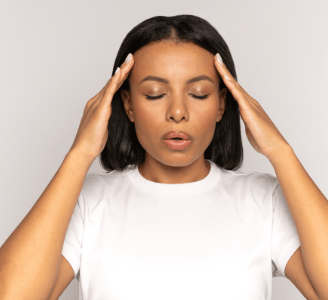Managing Stress and Anxiety: Effective Coping Mechanisms
Feeling overwhelmed by stress and anxiety? Discover effective coping mechanisms to manage your emotions, promote relaxation, and find inner peace
STRESS MANAGEMENTMENTAL HEALTH & WELLNESS
9/5/20244 min read


Understanding the Impact of Stress and Anxiety
Stress and anxiety, though often used interchangeably, represent distinct responses to life's challenges. Stress is typically a reaction to an immediate threat or pressure, manifesting in physical, emotional, and behavioral responses. Anxiety, conversely, is usually linked to the anticipation of future challenges or threats, characterized by persistent and excessive worry. Both conditions are grounded in the body's instinctive "fight or flight" response, designed for our protection.
The causes of stress and anxiety are multi-faceted, ranging from everyday pressures such as work deadlines and financial concerns to significant life events like loss or health issues. In response to these triggers, the body undergoes several physiological changes. The hypothalamus signals the adrenal glands to release adrenaline and cortisol, hormones that increase heart rate, elevate blood pressure, and prime muscles for action. Over time, these responses can lead to muscle tension, digestive issues, and a compromised immune system.
It is critical to distinguish between normal stress or anxiety and chronic conditions. Normal stress can actually be beneficial in controlled doses, enhancing performance and alertness. Similarly, occasional anxiety can be a natural part of life. However, when stress or anxiety becomes chronic, it may lead to serious health issues, including anxiety disorders, depression, cardiovascular diseases, and more. These chronic conditions often necessitate professional intervention.
Statistically, stress and anxiety are significant public health concerns. According to the American Psychological Association, a vast majority of adults report experiencing moderate to high levels of stress, with notable percentages suffering from anxiety disorders. The World Health Organization recognizes anxiety disorders as one of the most common mental health conditions globally, affecting millions of individuals each year. This prevalence underscores the urgency of developing effective mechanisms for managing stress and anxiety in today's fast-paced world.
Practical Strategies for Stress and Anxiety Management
Managing stress and anxiety requires a holistic approach, incorporating a variety of effective coping mechanisms. One of the foundational techniques is deep breathing exercises. This practice involves taking slow, deep breaths to help the body and mind relax. Simple yet powerful, deep breathing can be practiced anywhere and is an immediate way to reduce stress levels.
Progressive muscle relaxation is another valuable technique. This method focuses on tensing and then slowly relaxing different muscle groups in the body. By paying attention to the contrast between tension and relaxation, individuals can become more aware of physical stress signals and learn to alleviate them.
Guided imagery involves visualizing calming scenarios or places, which can help distract the mind from stressors and promote relaxation. This technique, often used in conjunction with deep breathing, can be highly effective in reducing anxiety.
Mindfulness practices such as meditation and yoga are also important strategies. Meditation encourages attention to the present moment, helping to break the cycle of anxious thoughts. Yoga combines physical postures with breathing exercises and meditation, offering both physical and mental relaxation benefits. Regular engagement in these activities can significantly reduce symptoms of stress and anxiety.
Physical activity plays a crucial role in managing stress. Exercise stimulates the production of endorphins, chemicals in the brain that act as natural painkillers and mood elevators. Whether it's a brisk walk, a run, or a sports activity, regular physical exercise can mitigate the effects of stress and anxiety.
A balanced diet is equally important. Consuming nutritious foods ensures that the body receives essential vitamins and minerals, which can positively influence mood and energy levels. Avoiding excessive caffeine and sugar can also help prevent heightened anxiety and mood swings.
Lastly, sufficient sleep is fundamental. Poor sleep can exacerbate stress and anxiety, creating a vicious cycle. Establishing a regular sleep routine and creating a restful environment can enhance sleep quality, which in turn improves overall stress management.
To illustrate, consider a case study of an individual named Sarah. Overwhelmed with work and personal responsibilities, Sarah integrated these strategies into her daily routine. She practiced deep breathing and progressive muscle relaxation during breaks, adopted mindfulness meditation for fifteen minutes each evening, engaged in regular physical exercise, improved her diet by including more fresh fruits and vegetables, and prioritized getting eight hours of sleep. Over time, these changes helped Sarah significantly reduce her stress and anxiety levels, demonstrating the efficacy of these practical strategies.
Incorporating Self-Care and Professional Help
Self-care stands as a cornerstone in effectively managing stress and anxiety. Integrating self-care practices into daily routines can significantly impact one’s mental well-being. Journaling, for example, allows individuals to express their thoughts and emotions, serving as a therapeutic outlet. This practice not only helps in processing feelings but also provides clarity and insight into one’s stressors and anxiety triggers.
Equally important is setting clear boundaries. In today’s fast-paced world, it is crucial to delineate personal time from professional commitments. Establishing boundaries can prevent burnout and create a balanced lifestyle, fostering a sense of control and reducing stress levels. Whether it’s declining extra work when overwhelmed or ensuring time for relaxation, boundary-setting is a fundamental self-care strategy.
Engaging in hobbies also plays a vital role in alleviating stress and anxiety. Hobbies offer an opportunity to immerse oneself in enjoyable activities, which can act as a distraction and provide a sense of accomplishment. Whether it's painting, gardening, or playing a musical instrument, these activities stimulate the mind and uplift mood, contributing to overall mental health.
Maintaining a regular self-care routine is essential. Consistency in self-care practices ensures that individuals are continuously nurturing their well-being, making them more resilient against stress and anxiety. This routine can be tailored to fit personal preferences and schedules, ensuring that it becomes a sustainable part of everyday life.
However, there are times when self-care alone might not suffice. Recognizing when to seek professional help is crucial. Therapy or counseling can provide a structured environment where individuals can explore their feelings with a trained professional. These services can offer coping strategies, emotional support, and a deeper understanding of mental health challenges. Expectations from therapy include confidentiality, a non-judgmental space, and personalized treatment plans.
Resources for finding professional support include online directories, recommendations from primary care providers, and community mental health services. Accessible and reliable resources ensure that those in need can find the support they require in a timely manner. By combining self-care practices with professional help, individuals can achieve a comprehensive approach to managing stress and anxiety.
